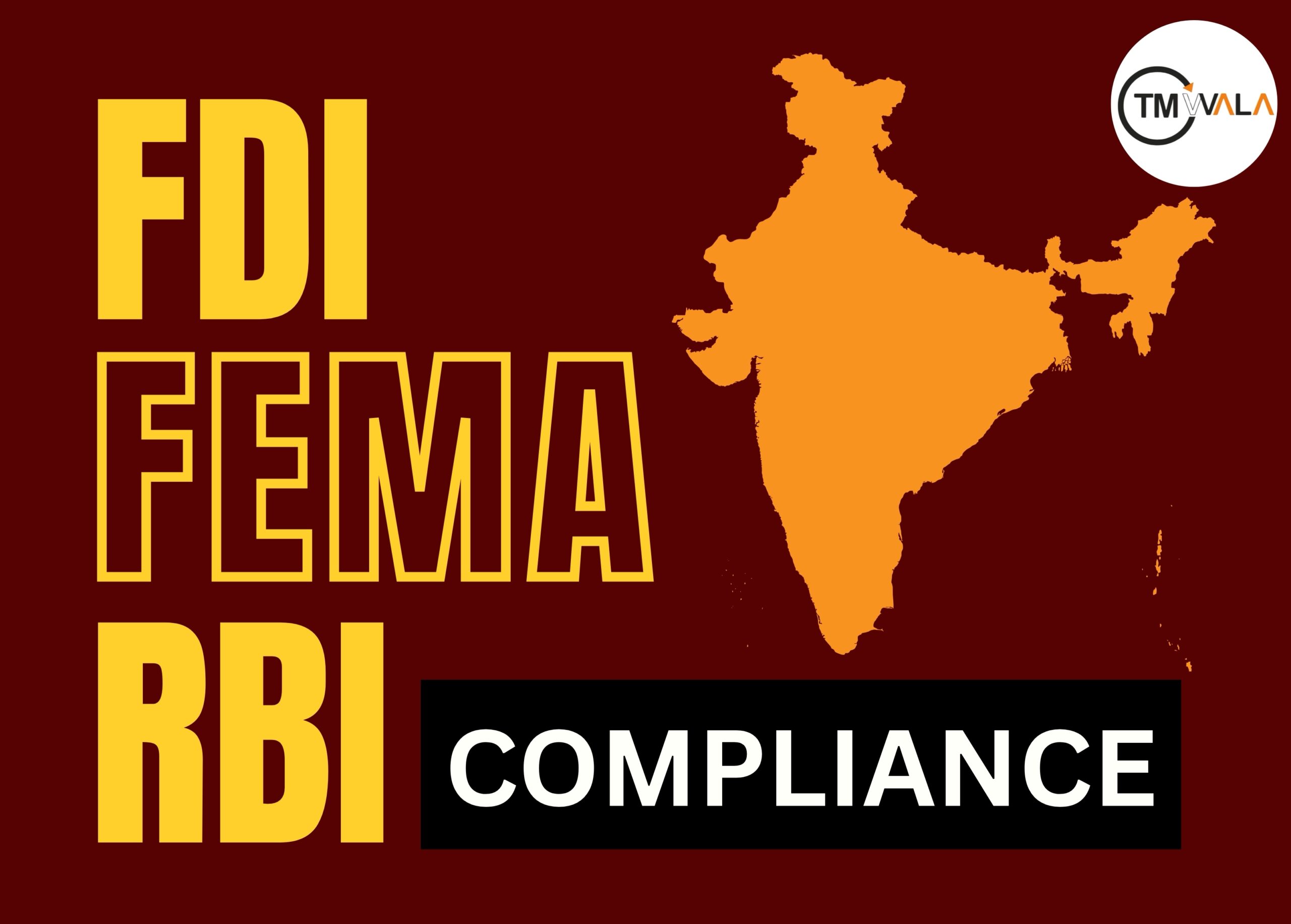
Foreign Direct Investment (FDI) in India plays a vital role in driving economic growth, fostering innovation, and creating employment. With India positioning itself as a global investment hub, the government continues to refine its FDI rules to ensure national security, promote domestic enterprise, and maintain transparency.
To successfully navigate the Indian market, foreign investors must comply with regulatory frameworks such as the Foreign Exchange Management Act (FEMA) and adhere to FEMA compliance and RBI compliance requirements. Proper reporting, especially through key forms like the FC-GPR form is essential to ensure that all foreign direct investment India transactions are legally valid and smoothly processed.
TMWala assists businesses in setting up, structuring investments, and ensuring full compliance with FEMA and RBI regulations, simplifying the FDI journey for foreign investors entering India.
FDI in India refers to investment made by a person or entity residing outside India into the capital instruments of an Indian company or a limited liability partnership (LLP). These capital instruments may include equity shares, preference shares, convertible debentures, share warrants, or other eligible instruments as notified by the Reserve Bank of India (RBI).
Foreign Direct Investment can be made through two primary routes:
FDI plays a pivotal role in economic development by bringing in foreign capital, technology, management expertise, and global market access. However, due to national security, economic stability, and data sovereignty considerations, the Indian government has revised its approach towards FDI, particularly in specific sectors.
India’s foreign investment environment is governed by evolving policies and sectoral guidelines. The latest FDI rules in India focus on strengthening national security, promoting self-reliance, and ensuring robust compliance with regulatory protocols.
With these evolving regulations, foreign investors need a strategic reassessment of their India market entry plans. This includes:
FDI in India continues to be a significant growth opportunity, but requires informed, well-structured execution to navigate the regulatory environment effectively.
The Foreign Exchange Management Act (FEMA), 1999, replaced the older and more restrictive FERA (1973) with a liberalized framework designed to facilitate external trade, foreign investment, and cross-border financial transactions.
FEMA compliance refers to adhering to the legal and procedural requirements laid down by FEMA and RBI for all foreign exchange and cross-border transactions. Non-compliance may attract penalties or disqualification under various statutes.
TMWala provides hands-on support to companies in preparing accurate documentation, managing RBI filings, and maintaining full FEMA compliance throughout the investment cycle.
The Reserve Bank of India (RBI) plays a central role in regulating and monitoring foreign exchange flows, including FDI. RBI compliance ensures that all foreign transactions are conducted transparently, legally, and with financial discipline.
The following are essential components of RBI compliance for the year 2025:
RBI has consolidated various forms into the Single Master Form (SMF) to simplify reporting. This online filing mechanism is required for various types of foreign investment transactions, including:
The FC-GPR form RBI is one of the most critical forms in the FDI reporting structure. It is used by Indian companies to report the allotment of capital instruments to a foreign investor, where such an issue qualifies as FDI under FEMA.
Failure to file the FC-GPR within the stipulated time can result in penalties, delays in shareholding recognition, and compliance issues for subsequent filings.
FDI in India offers significant growth potential, but it comes with evolving regulatory requirements. With the government tightening FDI rules in India, especially in sensitive sectors, investors must follow a compliance-first approach.
Adhering to FEMA compliance and RBI compliance is essential for all cross-border transactions. Timely submission of key forms like the FC-GPR form RBI ensures smooth processing of foreign direct investment India.
In today’s landscape, success depends on understanding the rules, choosing the right structure, and staying fully compliant.
Partnering with experts like TMWala enables foreign investors to simplify the setup process, reduce compliance risk, and stay focused on growth while adhering to all regulatory norms.
Get started instantly
"*" indicates required fields

TMWala
Your one stop shop for all your business registration and compliance needs.
"*" indicates required fields
Choose your Entity Type
Non-MSME/ Large Entitie
Individual/ MSME/ Sole Proprietorships

₹9,000.00 Original price was: ₹9,000.00.₹3,999.00Current price is: ₹3,999.00.
Trademark Application @ ₹3999* (Premium Discounted Plan for MSME/Individual/Sole Proprietorships) Comprehensive
Government Fees
₹4500/-

₹9,000.00 Original price was: ₹9,000.00.₹3,999.00Current price is: ₹3,999.00.
Trademark Application @ ₹3999* (Premium Discounted Plan for Non-MSMEs/Large Entities) Comprehensive
Government Fees
₹9000/-
Choose your Entity Type
Individual/ MSME/ Sole Proprietorships
Non-MSME/ Large Entities
₹3,500.00 Original price was: ₹3,500.00.₹1,999.00Current price is: ₹1,999.00.
Government Fees
₹4500/-
₹3,500.00 Original price was: ₹3,500.00.₹1,999.00Current price is: ₹1,999.00.
Government Fees
₹9000/-
Choose your Entity Type
Individual/ MSME/ Sole Proprietorships
Non-MSME/ Large Entities

₹1,500.00 Original price was: ₹1,500.00.₹999.00Current price is: ₹999.00.
Trademark Application @ ₹999* (Basic Discounted Plan for MSME/Individual/Sole Proprietorships) Best-Selling, Economical & Easy

₹1,500.00 Original price was: ₹1,500.00.₹999.00Current price is: ₹999.00.
Trademark Application @ ₹999* (Basic Discounted Plan for Non-MSMEs/Large Entities) Best-Selling, Economical, Quick and Easy